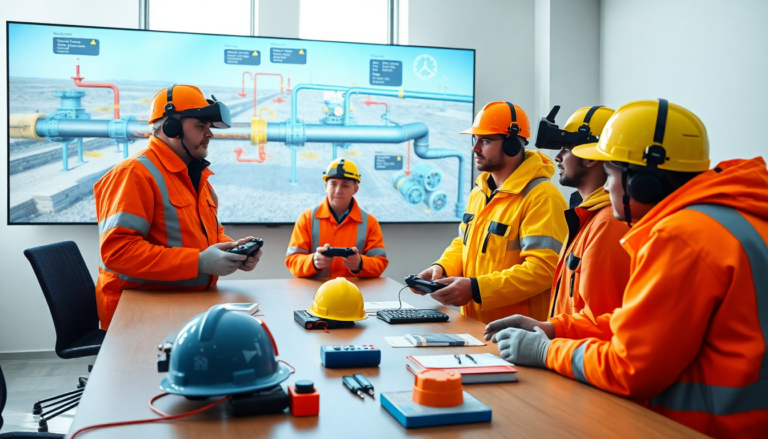Argomenti trattati
Introduction to AI in Pipeline Safety Training
The collaboration between the Mary Kay O’Connor Process Safety Center (MKO) and EnerSys Corporation marks a significant advancement in pipeline safety training. By integrating artificial intelligence (AI) into a gaming platform, this initiative aims to provide a more immersive learning experience for pipeline operators. Understanding the dynamics of pipeline operations in a controlled, game-like environment prepares individuals to respond effectively to emergencies.
Creating Realistic Training Scenarios
This innovative training framework is designed to simulate potential pipeline incidents, allowing users to engage with various scenarios that could impact operations. As Faisal Khan, director of MKO, explains, the use of AI will enable the creation of multiple scenarios that can challenge operators in ways that are reflective of real-world situations. This approach not only enhances knowledge acquisition but also fosters a proactive mindset among trainees.
The Role of Industry Collaboration
Industry partnerships play a crucial role in the development of this training platform. Funded by the Pipeline Hazardous Materials Safety Administration, this project aims to provide invaluable training to teams responsible for managing hazardous conditions. EnerSys Corporation’s CEO, Russel Treat, emphasizes that the goal is to make the training experience as realistic as possible, ultimately leading to more effective responses during actual incidents.
Why Pipeline Safety Training is Essential
Pipelines are vital components of our infrastructure, transporting essential materials across vast distances. However, the infrequency of pipeline incidents can lead to a lack of experience among operators. Treat points out that many individuals may go their entire careers without encountering a real emergency, making it imperative to equip them with the skills needed for quick and effective action when incidents do occur. The gaming platform provides an opportunity for hands-on experience, crucial for reinforcing theoretical knowledge.
Simulating Pipeline Failure Scenarios
The AI-driven platform will simulate various pipeline failure scenarios, allowing operators to practice their response strategies without the risk associated with real-life incidents. This training tool aims to bridge the gap between theory and practice, ensuring that operators are well-prepared for any situation they may face in the field.
The Future of Pipeline Training
Looking ahead, the development team plans to initiate trial scenarios by the end of the year, collecting data that will inform future enhancements to the training program. This iterative process will ensure that the platform remains effective and relevant. Khan believes that this initiative represents a significant opportunity for learning and growth within the industry, emphasizing the importance of merging theoretical knowledge with practical experience.
Funding and Support for Research
The Texas A&M Engineering Experiment Station (TEES) oversees the funding for this innovative research, further underscoring the importance of academic and industry collaboration. By leveraging academic expertise and industry experience, the project aims to create a robust training system that not only enhances pipeline safety but also improves emergency response protocols.
Conclusion
As the landscape of pipeline safety training evolves, this partnership between MKO and EnerSys stands at the forefront of innovation. By embracing AI and gaming technology, they are setting a new standard for training systems in the industry, ultimately aiming to save lives and protect vital infrastructure.

